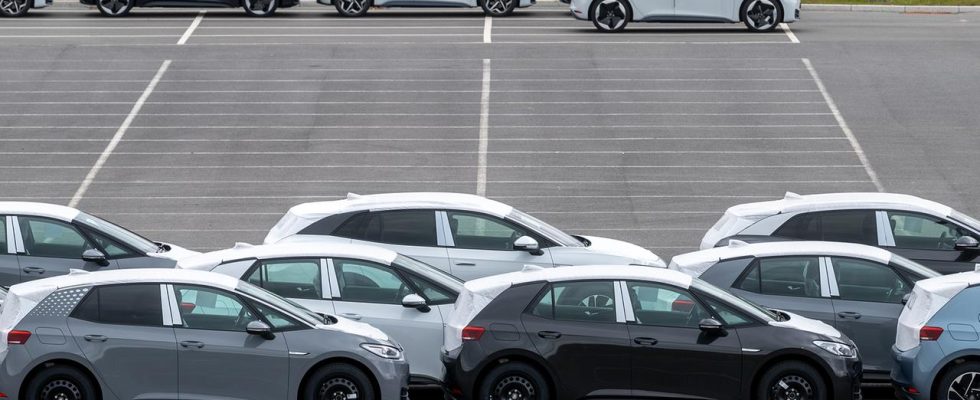Almost 20 percent of the cars on Germany’s roads are now electric. Nevertheless, their share is growing more slowly than hoped – probably also because of the elimination of the environmental bonus.
Sales growth for electric cars slowed in Germany last year. A total of 524,219 new electric cars hit the road, 11.4 percent more than in the previous year, as the Federal Motor Transport Authority announced today. Last year the number of new registrations rose by 30 percent.
In addition to the reluctance of customers in view of high car prices and a lack of charging options, the sudden end of the e-car subsidy is making the situation even more difficult, said Constantin Gall, car expert at the EY management consultancy. This is likely to become apparent in the coming year: “The loss of funding will lead to a significant decline in buying interest and overall decline in sales of electric cars in 2024.”
After growth last year was weaker than expected in the industry, the prospects for 2024 are also “rather poor,” Gall added: “The ramp-up of electromobility is stalling, many potential customers are waiting for now.” Nevertheless, electric cars were able to expand their market share in 2023: it rose from 17.7 to 18.4 percent.
VW overtakes Tesla
German companies in particular were able to impress buyers: the three German car companies VW, BMW and Mercedes-Benz achieved above-average growth of 32 percent in 2023, so that their market share climbed to 46 out of 38 percent.
Volkswagen even overtook the US car manufacturer Tesla as the leading electric car brand with 70,628 new cars, an increase of almost twelve percent. Tesla, however, lost nine percent with 63,685 new registrations, even though the Americans’ Model Y was the most popular model ahead of the VW IDs.
Suppliers from China, who are expected to experience strong growth, accounted for 5.5 percent of electric cars and almost eight percent including hybrid models. According to EY, their share has doubled compared to 2022. The Chinese have not yet acted as price breakers, but they are putting established manufacturers under increasing pressure. The most successful of them was the MG Roewe brand, which belongs to VW partner SAIC, and 18,526 new cars came onto the road.

